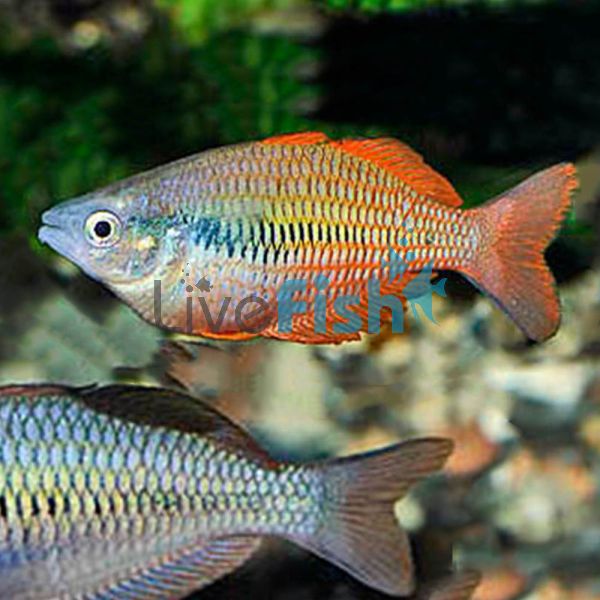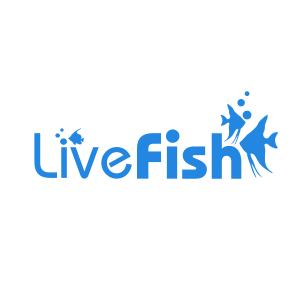Parva Rainbow - Lake Kurumoi Rainbow 4cm
A lesser-known rainbowfish in the general aquarium community, but an incredibly colourful species is the Parva rainbowfish. These fish have a vibrant array of colours that are naturally occurring, meaning that they are a true display of nature's beauty. These rainbowfishes are often a high-end collector species because of their rarity and beautiful colouration. These would be the perfect rainbowfish to highlight in a species-only planted aquarium to showcase the array of contrasting colours against a lush green background.
- Buy 5 for $24.54 each and save 10%
- Buy 10 for $21.82 each and save 20%
Parva Rainbow
A lesser-known rainbowfish in the general aquarium community, but an incredibly colourful species is the Parva rainbowfish. These fish have a vibrant array of colours that are naturally occurring, meaning that they are a true display of nature's beauty. These rainbowfishes are often a high-end collector species because of their rarity and beautiful colouration. These would be the perfect rainbowfish to highlight in a species-only planted aquarium to showcase the array of contrasting colours against a lush green background.
The Parva rainbow is a great species for smaller aquariums, they only reach a maximum of 10 cm, and their name ‘Parva’ in Latin means small. With Parva rainbowfish, the males have the most stunning colouration whereas females are a more dialed down, grey colour. Even without breeding colours, the males are truly stunning with a deep red body and a netting of orange scales. Near the lateral line, there are also hints of green which are broken up by the jet-black bar running across the fish.
Parva rainbows can be bred in the home aquarium quite commonly as once they reach maturity, females lay eggs on an almost daily basis. Aquarists often make spawning mops out of acrylic yarn and place these into the aquarium, the females will swim through the yard and lay a few eggs which the male will then fertilize. The eggs can then be collected and raised in a separate aquarium which makes for a great hands-on experience.
Tank Recommendations for your Parva Rainbow
The Parva rainbows do reach around 10 cm and are an incredibly active species. It is best to keep them in the tank with a minimum volume of 70 liters. A trio of these fish can be kept in here comfortably.
The Parva rainbow is planted safe and will not only love but also look great in a well-planted aquarium. They are mostly mid to top water-dwelling fish so the choice of substrate and aquarium hardscape is not a major concern. They are however excellent jumpers so a tight-fitting lid is a must for the aquarium. These are also tropical fish that are best kept at 24-26 degrees.
Suitable Tank Buddies
The Parva rainbow fish is incredibly peaceful but due to their speed, they may potentially outcompete slow or bottom-dwelling tank mates. They can however be kept in a wide range of community aquarium settings and with other rainbow fish strains.
Usually Compatible
Other rainbow fish species, a range of tetra species such as lemon tetras, black widow tetras, and Congo tetras along with danio species as well.
Sometimes Compatible
Corydoras, Apistogramma, angelfish, and other smaller or potentially slow-moving species.
Rarely Compatible
Aggressive species may prey on the neon rainbow or an incredibly small species such as shrimp which may be eaten by the rainbow fish
Feeding your Parva Rainbow
Parva rainbow fish will take to aquarium foods very easily. They will take a wide range of pellets, flakes, and frozen foods. Giving them a varied diet ensures that they have optimal nutrition. The ideal diet would be good quality floating food, supplemented with frozen bloodworms or black worms or even live foods like baby brine shrimp or micro worms.
| Scientific Name | Melanotaenia Parva |
|---|---|
| Care Level | Easy |
| Common Names | Parva Rainbow, Lake Kurumoi Rainbowfish |
| Diet | Omnivore |
| Fish Family | Melanotaeniidae |
| Lifespan (years) | 5 |
| Max. Length (cm) | 10 |
| Min. Tank Volume (l) | 70 Liters |
| Origin | Papua New Guinea |
| Reef Safe | Yes |
| Sociability | Peaceful |
| Venomous | No |
| Water Conditions | 24-26° C, pH 6.0-7.0 |




